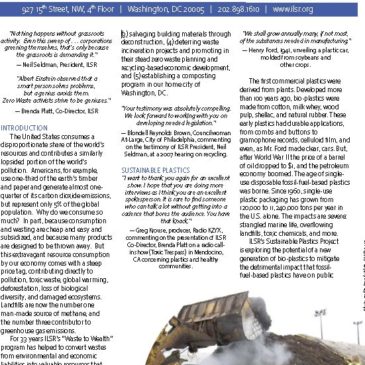Waste to Wealth – 2007 Annual Report
For 33 years ILSR’s “Waste to Wealth” program has helped to convert wastes from environmental and economic liabilities into valuable resources that contribute to community development. In 2007, our work has focused on the following: encouraging sustainable biomaterials to replace fossil-fuel-based plastics developing green industrial parks salvaging building materials through deconstruction deterring waste incineration projects and … Read More




